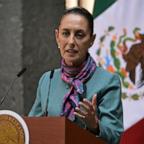The state's expert witness, Michiel McCarty, calculated that Donald Trump's lenders lost $168 million in potential interest between 2014 and 2023, according to a report he presented in court.
McCarty's testimony appeared to reinforce a central tenet of New York Attorney General Letitia James' case: that Trump's misrepresentations in his financial statements cost banks potential earnings from interest, even if the banks made money on the loans.
State attorney Kevin Wallace directed McCarty to a footnote in Judge Engoron's earlier summary judgment order about the concept of lost interest, in which Engoron said, "The subject loans made the banks lots of money; but the fraudulent SFCs [Statements of Financial Condition] cost the banks lots of money. The less collateral for a loan, the riskier it is, and a first principle of loan accounting is that as risk rises, so do interest rates. Thus, accurate SFCs would have allowed the lenders to make even more money than they did."
McCarty, who said he agreed with this assessment, ultimately found that banks lost a total of $168,040,168 in potential interest from loans related to four of Trump's properties in Miami, New York, Chicago, and Washington, D.C.
Trump attorney Chris Kise fiercely objected, arguing that McCarty was testifying about facts not established during the trial. During questioning, state attorneys declined to ask a Deutsche Bank executive if the bank would have still done business with Trump had they known his financial statements were inflated.
"They are not ill-gotten gains if the bank does not testify it would have done it differently," Kise said.
"I decided these were ill-gotten," the Judge Engoron replied.
Following Wallace's direct examination of McCarty, defense attorney Jesus Suarez began his cross-examination.




